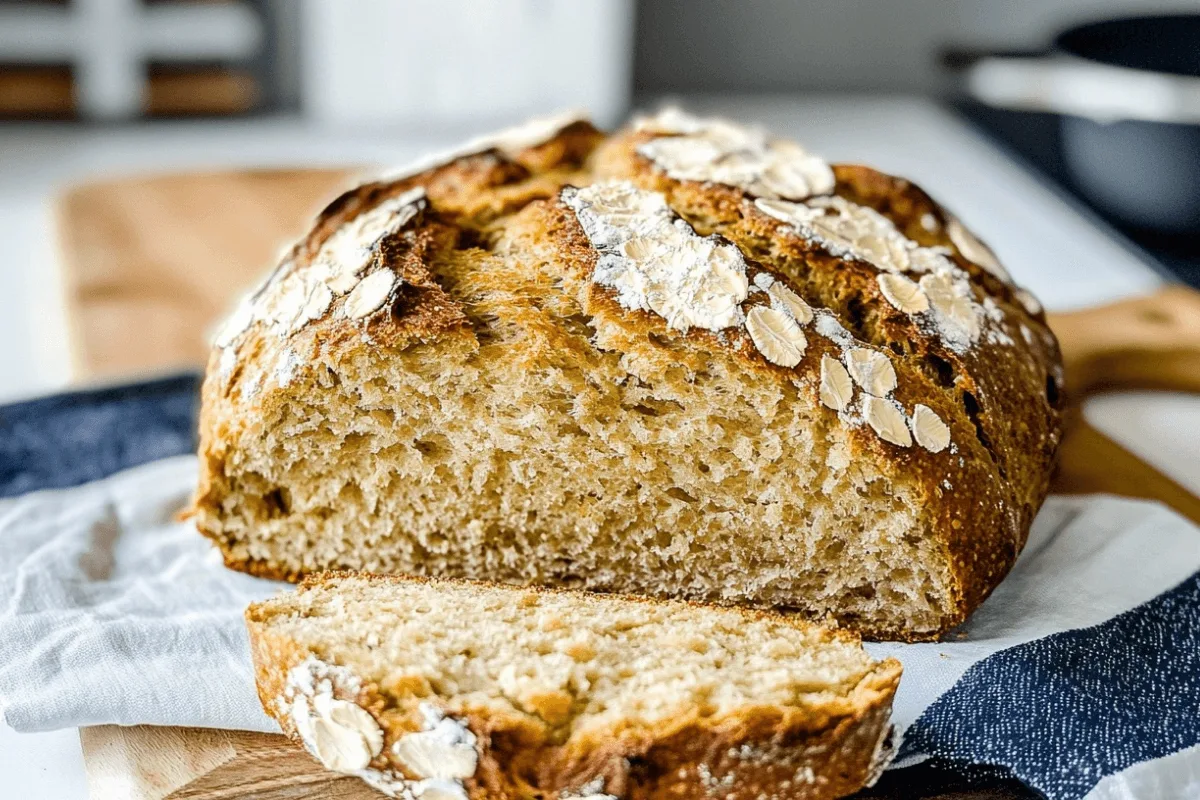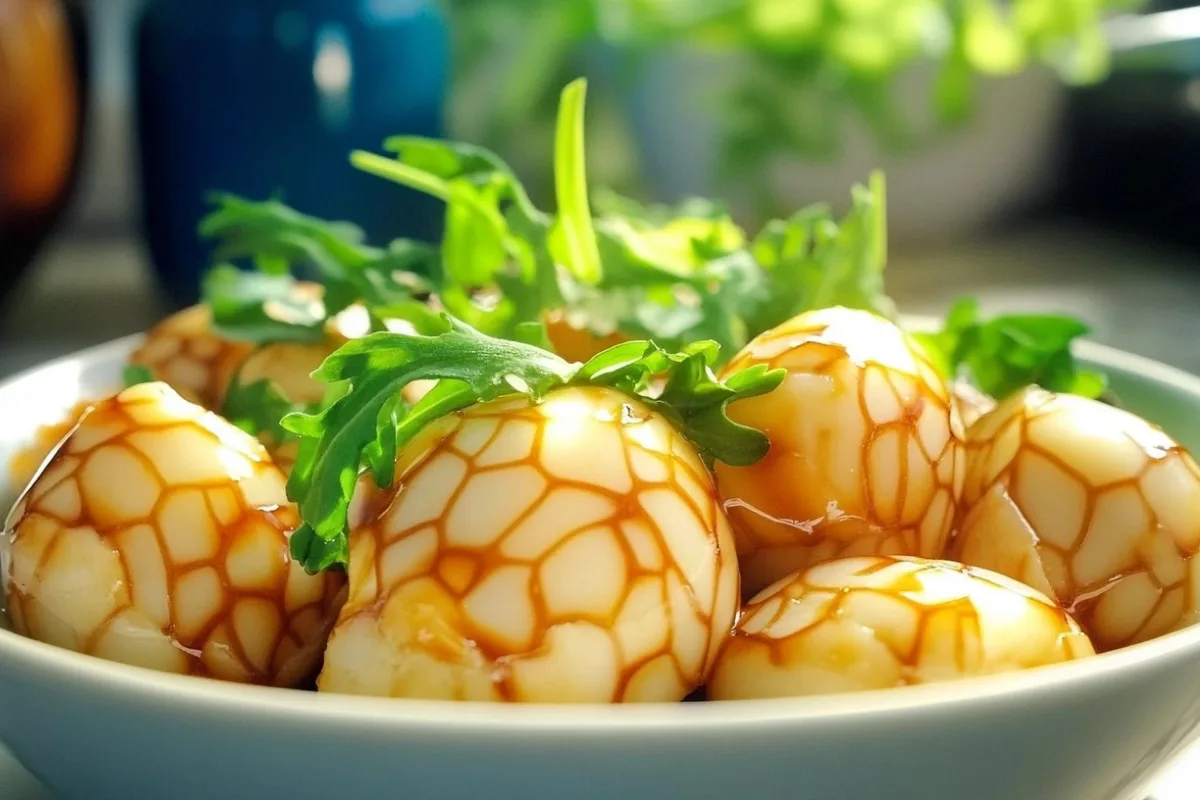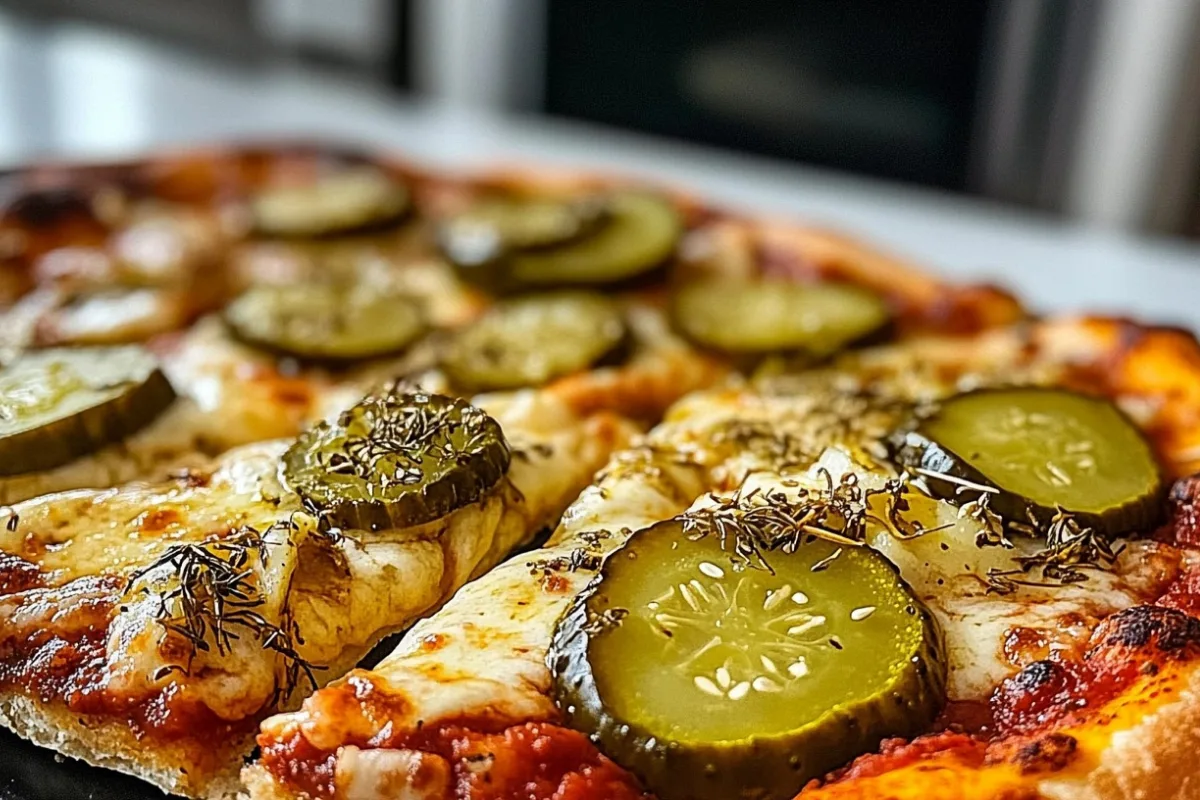Overnight oats have become a staple for those who crave convenience and nutrition in the mornings. A common question arises, though: is it unhealthy to use maple syrup in overnight oats? Let’s dive into this topic, unpack the nutritional aspects, and explore ways to create a balanced breakfast.
If you love creative recipes, check out this soft and chewy date cookie recipe for a healthy and delicious treat.

Table of contents :
Why Maple Syrup in Overnight Oats Is a Hot Topic
Maple syrup often finds its way into overnight oats as a natural sweetener. But is this choice healthy? Many turn to maple syrup for its natural origins and rich flavor, but concerns about sugar content make it a debated topic. With the rise in focus on clean eating, it’s essential to weigh the pros and cons of incorporating it into your breakfast routine.
If breakfast options excite you, don’t miss these simple steps to perfect date cookies—an ideal sweet treat alongside your oats.
What Makes Overnight Oats a Popular Breakfast Choice?
Overnight oats are beloved for their simplicity and versatility. Preparing them the night before means a nutritious breakfast is ready when you wake up. They’re also rich in fiber, vitamins, and minerals, making them a powerhouse meal.
The flexibility of toppings and sweeteners like maple syrup is another reason overnight oats are so popular. For a complementary recipe, try this easy blueberry lentil bread for a unique and healthy addition to your breakfast spread.
The Role of Sweeteners in Breakfast Foods
Sweeteners are a key ingredient in many breakfast dishes, including oats. They add flavor and make the meal more enjoyable. Maple syrup, in particular, is often preferred because of its natural production process.
If you’re experimenting with flavors, these grey-colored cookies are a fun and visually appealing option to pair with your oats.
Understanding Maple Syrup and Its Nutritional Profile
What Is Maple Syrup Made Of?
Maple syrup is made from the sap of sugar maple trees, which is boiled down into a thick, sugary syrup. Unlike artificial sweeteners, it contains no additives, which appeals to health-conscious consumers.
Despite being natural, is it unhealthy to use maple syrup in overnight oats? Its high sugar content means moderation is critical.
Nutritional Benefits of Maple Syrup
Maple syrup isn’t just empty calories. It contains:
- Small amounts of vitamins like riboflavin.
- Minerals such as manganese and zinc.
- Antioxidants that help fight free radicals.
For more on enjoying your meals to the fullest, check out this guide on how to eat a cinnamon swirl like a pro.
Natural vs. Artificial Sweeteners: Where Maple Syrup Fits
Artificial sweeteners like aspartame and sucralose are calorie-free but often criticized for their chemical composition. Maple syrup, on the other hand, is a natural alternative.
But is it unhealthy to use maple syrup in overnight oats? While it’s more wholesome than many artificial options, its sugar content still warrants mindful use.
The Health Impact of Maple Syrup in Overnight Oats
Is Maple Syrup a Healthy Option for Sweetening Overnight Oats?
The answer depends on how much you use. A small drizzle of maple syrup can enhance the flavor of overnight oats without drastically increasing your sugar intake.
However, consistently using large amounts could contribute to excess calories and blood sugar spikes, raising questions about its healthfulness.
How Maple Syrup Affects Blood Sugar Levels
Maple syrup has a glycemic index of about 54, meaning it causes a moderate rise in blood sugar levels. This is lower than refined sugar but still significant.
If you’re managing diabetes or trying to stabilize your energy levels, ask yourself, is it unhealthy to use maple syrup in overnight oats in these cases? Choosing alternatives may be more suitable.
Does the Quantity of Maple Syrup Matter?
Absolutely. Moderation is crucial when using maple syrup in overnight oats. A teaspoon or two provides flavor without overwhelming your oats with sugar. Overusing it, however, turns your nutritious breakfast into a dessert.
Comparing Maple Syrup to Other Sweeteners
How Does Maple Syrup Stack Up Against Honey?
Honey is another popular natural sweetener. Both are high in sugar, but honey has slightly more calories per serving. Maple syrup is also vegan, which might be a deciding factor for some.
Maple Syrup vs. Brown Sugar: Which Is Better for Overnight Oats?
Brown sugar is processed, while maple syrup is natural. However, both have similar sugar content. If healthfulness is your goal, choosing maple syrup in overnight oats is the more natural option.
Are There Healthier Alternatives to Maple Syrup?
Healthier alternatives include:
- Stevia for a calorie-free option.
- Fresh fruits like bananas or dates.
- Coconut sugar for a lower glycemic impact.
Expert Tips for Using Maple Syrup in Overnight Oats
How Much Maple Syrup Should You Use in Your Oats?
Stick to about 1-2 teaspoons per serving. This small amount adds flavor without overpowering the dish or significantly increasing sugar levels.
Combining Maple Syrup with Other Ingredients for Balanced Nutrition
Pair maple syrup with high-fiber ingredients like chia seeds or nuts. This helps slow sugar absorption, making it a better choice for your morning meal.
When to Avoid Using Maple Syrup in Overnight Oats
If you’re on a low-sugar diet or managing blood sugar levels, you may want to skip the maple syrup. Use natural fruit purees or spices like cinnamon for flavor instead.

Frequently Asked Questions (FAQs)
Is Adding Maple Syrup to Oatmeal Bad?
Adding maple syrup to oatmeal isn’t inherently bad. It provides a natural sweetness and adds trace minerals like zinc and manganese. However, its high sugar content can lead to spikes in blood sugar if used excessively. The key is moderation—using one to two teaspoons per serving ensures flavor without overloading on sugar.
What Not to Add in Overnight Oats?
When preparing overnight oats, avoid ingredients that compromise their healthfulness:
- Excessive sweeteners (like sugar or flavored syrups).
- Highly processed toppings (like candy or sugary granola).
- Full-fat dairy if you’re watching calories.
Instead, focus on nutrient-dense add-ins like fruits, nuts, or seeds for a well-rounded meal.
What Is a Good Sweetener for Overnight Oats?
Good sweeteners for overnight oats include:
- Maple syrup (in small amounts).
- Honey for natural sweetness.
- Stevia or monk fruit for a calorie-free option.
- Mashed fruits like bananas or apples for added fiber and natural sugar.
Each option has its benefits, so choose one that aligns with your health goals.
What Is the Best Liquid for Overnight Oats?
The best liquid depends on your dietary needs and taste preferences. Options include:
- Unsweetened almond milk for a low-calorie, nutty flavor.
- Oat milk for creaminess without dairy.
- Coconut milk for a richer texture.
- Water for a neutral, calorie-free choice.
Choose liquids that complement your oats while keeping calories in check.
Other Sweetener Options for Overnight Oats
Using Stevia as a Low-Calorie Alternative
Stevia is a plant-based sweetener with zero calories. It’s ideal for those looking to avoid sugar while still enjoying a hint of sweetness in their overnight oats.
The Pros and Cons of Agave Nectar in Oats
Agave nectar has a lower glycemic index than sugar, but it’s still calorie-dense and should be used sparingly. Its mild flavor blends well with other ingredients, making it a good choice for a subtle sweetness.
Why Fresh Fruits Can Be a Natural Sweetener
Fresh fruits like bananas, berries, and dates provide natural sweetness along with fiber, vitamins, and antioxidants. They’re an excellent choice for boosting the nutrition of your overnight oats without relying on processed sweeteners.
Maximizing the Health Benefits of Overnight Oats
Pairing Overnight Oats with High-Fiber Toppings
Adding high-fiber toppings like chia seeds, flaxseeds, or shredded coconut improves digestion and keeps you full longer. Fiber also helps slow sugar absorption, making your meal more balanced.
Balancing Sweetness with Healthy Fats
Healthy fats, such as those from nuts, nut butter, or avocado, pair well with the sweetness of maple syrup or fruit. They add creaminess and help regulate blood sugar spikes, creating a more satisfying breakfast.
The Role of Portion Control in Healthy Eating
Portion control is crucial when preparing overnight oats. Too much sweetener or calorie-dense toppings can turn a healthy meal into an indulgent one. Stick to measured amounts of syrup, nuts, and seeds for the best results.
Conclusion
Is Maple Syrup in Overnight Oats Unhealthy?
Using maple syrup in overnight oats isn’t unhealthy if done in moderation. Its natural sugars and minerals make it a better option than processed sweeteners, but the quantity is key.
How to Enjoy Overnight Oats Guilt-Free
To keep your oats healthy and delicious:
- Use small amounts of natural sweeteners like maple syrup.
- Include nutrient-dense toppings like fruits, nuts, and seeds.
- Pair with unsweetened plant-based milk for a balanced meal.
By following these tips, you can enjoy overnight oats guilt-free while exploring creative recipes like soft and chewy date cookies or easy blueberry lentil bread.
Looking for more helpful tips and recipes? Check these out:
- How Long Can You Keep Pie Filling in the Fridge? Storage Tips Inside
- Can You Save Leftover Pie Filling? Expert Storage Tips & Ideas
- French Bread Sourdough: History, Baking Tips, and Health Benefits
- Bake Your Own Iconic San Francisco Sourdough Bread with This Step-by-Step Recipe
- Master the Art of San Francisco Sourdough Starter at Home
















